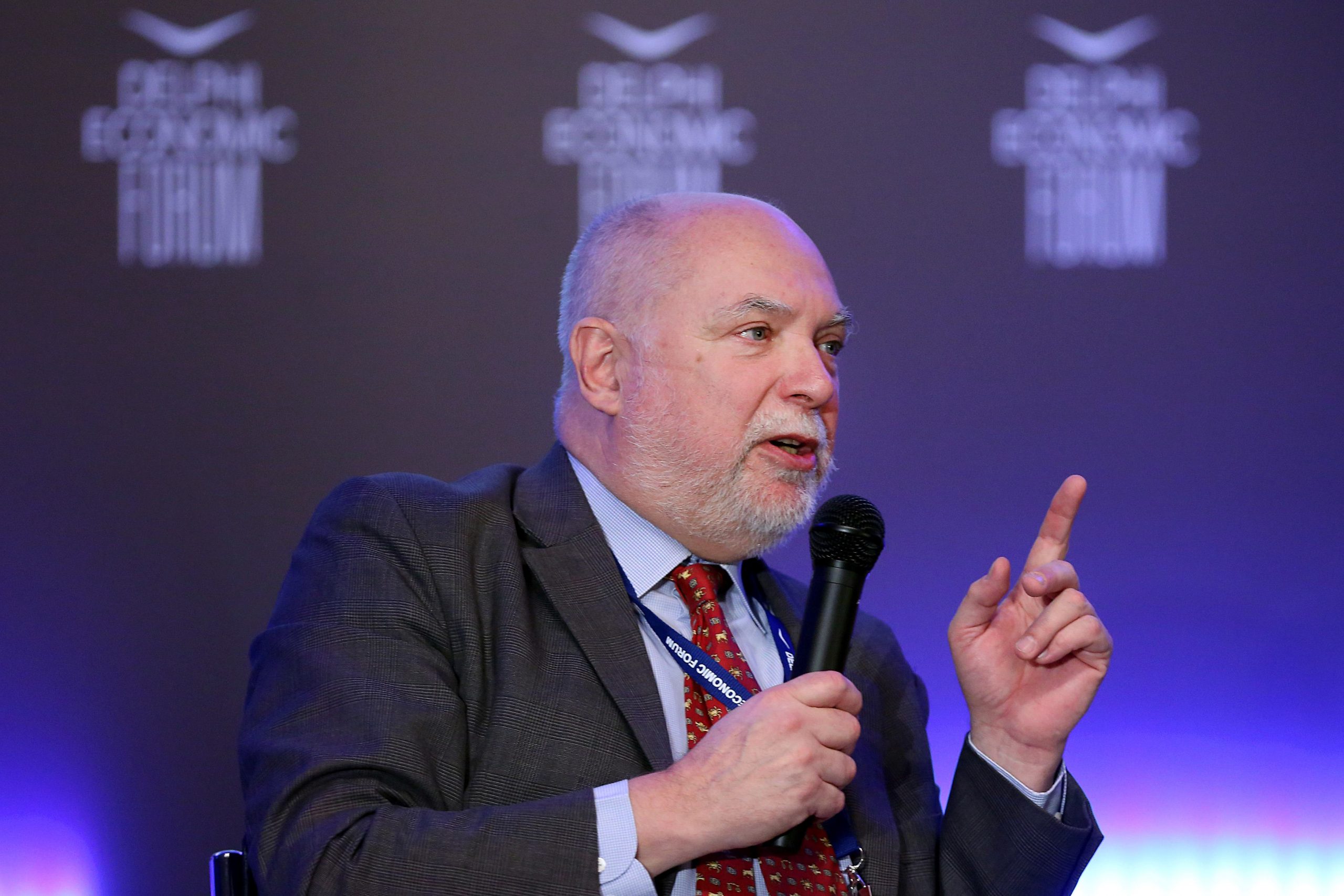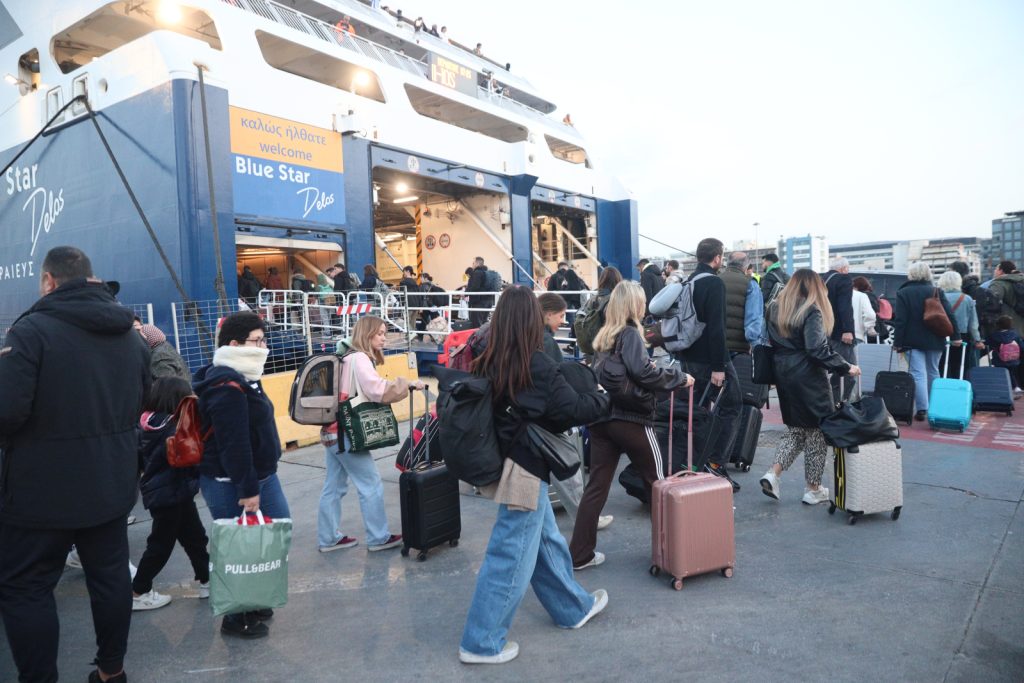Thomas Wieser is a Board Member of the European Forum Alpbach and Non Resident Fellow in Bruegel. Thomas Wieser was President of the Euro Working Group and of the European Financial Committee of the European Union until February 2018 and has dealt numerous times with serious crises. He will participate in the Delphi Economic Forum that will take place 10 – 13 of April in Delphi.
Are you bracing yourself for the next EU storm? And if any, what lessons have we learned from the previous crisis?
Old people will remember the seemingly tranquil times of the Cold War where a sort of tense peace reigned in Europe. The fall of the Iron Curtain, the liberalisation process after 1989 in CEE and beyond, has produced widely divergent outcomes across Europe. The war of aggression against Ukraine is the largest though of course not the only security challenge we are facing. Instability and war in the Near and Middle East, turmoil in parts of Africa to name but a few add to this picture. And even more distant winds of war can produce economic turmoil in Europe.
So, the question is what should be done to cater for unpredictable events.
My first element would be that in those cases where the EU acts as one we will be able to be stronger, more resilient, and withstand even large challenges. This is unfortunately not often the case, sometimes because of genuinely differing views between a larger number of Member States, and more often than necessary because one single Member State is gaming the system. Usually Hungary. Hoping for cognitive enlightenment of actors will not help, so we need to find different ways of achieving agreement between Member States. Simply asking for more areas of qualified majority voting will not solve the problem, but possibly agreeing on areas where groups of interested and willing countries would work together would be a start.
My second element is that Europe is strong where the Internal Market works seamlessly and without flaws. This is most often the case in the field of trade in industrial goods, and does not work well in the case of many services. Think of the European electricity market, the telecom market, or banking and capital markets. Here, market segmentation is still rife, and European firms find it impossible to achieve the scale necessary for competing successfully at the global level. Even where the Internal Market works well in good times hitches and glitches develop in bad times, think of the Covid restrictions a few years ago, or the subsidy race that is developing as we work towards solving the issues of the twin transition.
Third, we need to develop better close contacts between state actors so that in an emergency we can work off well developed plans that have been stress tested. Crisis will always be different from the blueprint, very different. But it is important that there are groups of people that habitually talk to each other and are solution oriented. An imperfect plan will always beat no plan.
Four, we need to work better towards not only a Europe that is competitive, but a Europe that spreads jobs and opportunities across all regions of the 27. Old style regional policies will need to be rethought as digital connectivity brings about a new geography of jobs. The European institutions have an important role here, but first and foremost national and regional governments need to adapt to new challenges.
In any case, and speaking of the more limited subset of crisis, namely financial crisis, we are infinitely better equipped than 15 years ago. There are instruments and institutions at the EU level that are strongly stabilizing features, not least the ECB. I still wonder why some Member States wish to remain outside the Euro Area, though of course not all of those that are outside would be eligible as members.
From your point of view what is the biggest challenge or even danger that the EU is facing?
The big dangers are those that not only the EU is facing. First and foremost is climate change, and we are seeing immense pushback against many of the proposed measures that would drastically reduce carbon and other emissions. This is understandable at the individual level – who wants to be forced to change his or her circumstances? Again, waiting for cognitive enlightenment of individual actors will be a disaster, so governments will need to bear part of the adjustment burden. If we do not solve this problem rapidly many of the other problems simply will not matter.
Second, the security situation we are facing is a danger for leading a peaceful and fulfilled life in Europe. We need to move together in terms of security, not only but mainly in military terms. This presupposes finding ways and means for finding agreement on many issues that today lie outside the remit of the European Treaties.
Third, climate change and unrest will lead to more, not less migration to Europe. We need to find a way of marrying the exigencies of ageing societies with societal acceptance of (orderly) migration. Our societies have failed in terms of integrating well those people who have often been in Europe for decades, let alone more recent arrivals.
Did you ever think during the difficult times of the financial crisis that Greece could be saved or even be a winner case?
I was always confident that Greece would emerge from these crisis alive and in the medium term healthy. There were times in 2015 when I started doubting my optimism, but in the end things worked out. I was always withstanding calls to work for a broader scope of the programmes in Greece. My argument was that ultimately a country needs to self-reflect on what led it into the problems it was facing, and solve the problems by itself – with some outside help if needed.
The case of Ireland stands out. There was a deep process of analysis what they had done wrong, and what they could do to get out of the mess they had landed in. This was not so in Greece, and would have made the situation much easier for all concerned.
The war in Ukraine, Covid – 19 and now Gaza. A lot of pressure in the EU economies and the debt levels are very high. Are you worried that we will face another catastrophic decade? Or is Europe more resilient now in a different kind of way?
As I was just saying, we are now in a much stronger and more resilient situation. But it is clear that other regions of the world are pulling ahead in terms of innovation, competitiveness and strength. Re-instilling in our societies the ambition for education, fairness and long-term thinking would be something we all should be working towards.
There has been a lot of talk for many many years about the Enlargement of the EU. Are you in favor of that prospect? Of Ukraine becoming a member? Even from a financial point of view.
Offering the Ukraine and others, obviously the Western Balkan countries, a clear path to accession is a clear win for these countries and for Europe. There are a few caveats. As we have seen in some case the elan for reforms goes to sleep on the day of accession. How to deal with that? Also, as the number of Member States creeps up the divergence of interests increases, and the likelihood of one Member State holding up a convoy of 30 others is unpalatable. So we need to find, to repeat myself, ways of ensuring better but democratically legitimate ways of finding agreements. Lastly, on finance, we need a larger EU Budget that caters for European public goods, but need to give back to Member States some of the financing obligations that now are resting on the shoulders of Brussels. At the same time we will need to find better ways of financing the EU budget, for example through carbon taxation and other own resources.



